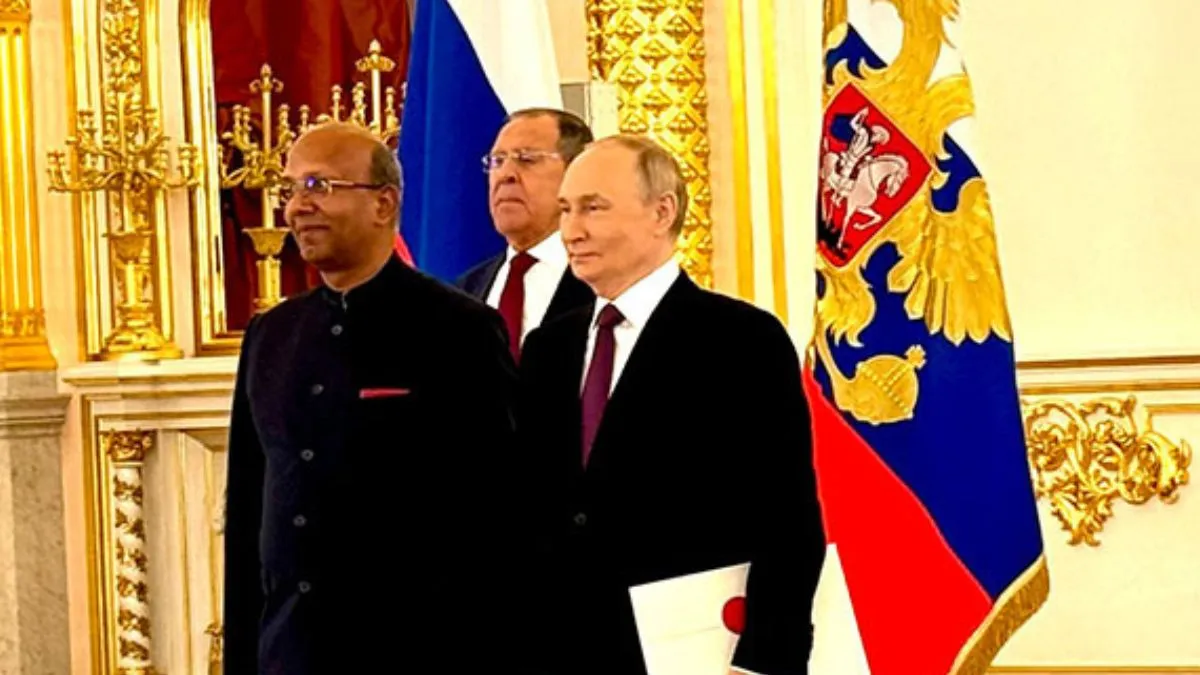- By Shivangi Sharma
- Mon, 25 Aug 2025 09:40 PM (IST)
- Source:JND
India’s envoy to Russia, Vinay Kumar, has highlighted growing opportunities for Indian workers in Russia, particularly in skilled industries. In an interview with TASS, Kumar explained that Russian companies are increasingly turning to Indian talent to address labour shortages across multiple sectors.
Kumar noted that “at a broader level, there is a manpower requirement in Russia, and India has skilled manpower.” Currently, within the framework of Russian laws, regulations, and quotas, companies are actively hiring Indians. While many Indians are presently engaged in the construction and textile sectors, demand is now rising in the machinery and electronics industries.
Consular Services Under Pressure
The envoy also pointed out the growing workload of consular services as more Indians arrive in Russia for employment. “When people come and leave, they need consular services to extend passports, register births, or deal with loss of documents,” he said. This growing demand reflects the sharp rise in the Indian workforce across Russia.
Data cited by the Observer Research Foundation (ORF) shows a dramatic rise in the number of Indian workers in Russia. In 2021, 5,480 Indians received work permits, while in 2024, the figure rose to 36,208. This surge underlines the increasing importance of Indian manpower to Russia’s economy, particularly as it grapples with workforce shortages.
Clarification In Recruitment Numbers
In July, Russia’s Labour Ministry denied claims that it plans to recruit 10 lakh Indian workers by the end of 2025. The clarification came after comments by the head of the Urals Chamber of Commerce and Industry, Andrei Besedin, who said Russia was likely to see a significant rise in foreign workers. While official targets remain modest, the rising figures suggest steady growth in Indian migration for employment.
ALSO READ: Will Pakistan Apologise For 1971 Genocide? Bangladesh Raises Question Again After Ishaq Dar’s Visit
Kumar emphasised that Indian workers’ growing presence in Russia reflects both countries’ evolving economic cooperation. While construction and textiles remain strong, the machinery and electronics industries are opening doors to skilled Indian professionals.
